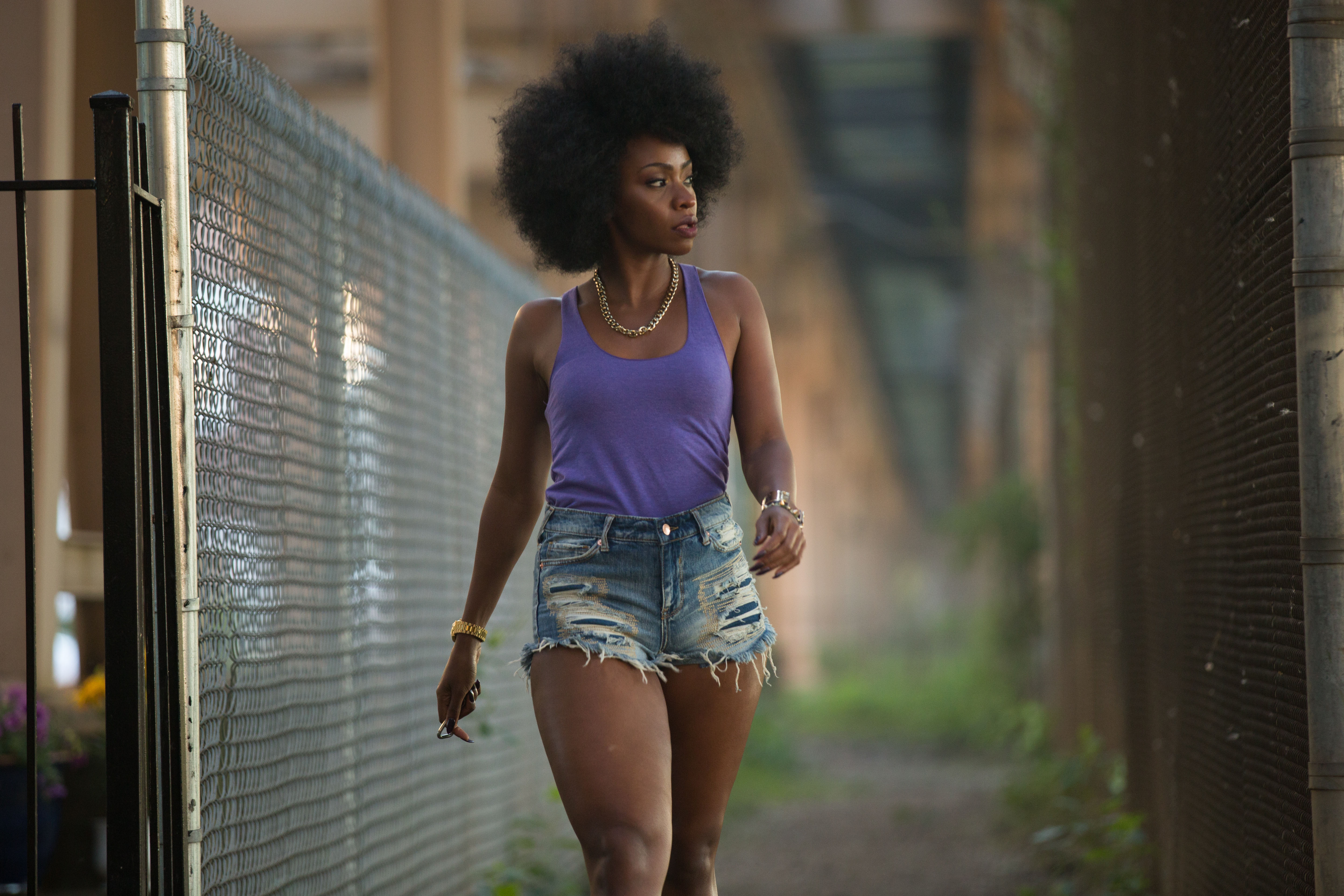Spike Lee's Chi-Raq is the political provocation America needs
Almost everyone is guilty in Spike Lee's satirical riff on the ancient Greek play Lysistrata


A free daily email with the biggest news stories of the day – and the best features from TheWeek.com
You are now subscribed
Your newsletter sign-up was successful
How can a filmmaker tackle the many problems facing the African-American community right now? With Chi-Raq, Spike Lee has found a novel solution: Revisiting a 2,500-year-old play.
Out on Friday, Chi-Raq is an update of Aristophanes' Lysistrata — a comedy about a group of women who go on a sex strike in an effort to force their husbands to end a war — that replaces ancient Greece with Chicago's South Side in the present. Lee has never been a timid filmmaker, and Chi-Raq is one of his boldest films yet, combining righteous fury, filthy humor, and genuine emotional catharsis. Lee recently said that his goal with Chi-Raq is to "save lives," and there is a deep urgency to his broad, satirical comedy. If the film lives up to Lee's ambitious promise, it's because he finds shreds of humanity and ugliness in all his characters — both the heroes and the targets of his satire. His specific, occasionally scolding viewpoint ensures that no one will agree with everything in Chi-Raq — yet no other film this year has the opportunity to raise the level of debate over institutional racism, gun violence, or the Black Lives Matter movement.
Chi-Raq begins with a long hip-hop overture containing a key piece of context: Chicago has surpassed the combat deaths in Iraq and Afghanistan combined. But after that real, painful fact is dropped, Lee pivots to a welcoming face. Samuel L. Jackson plays the Chorus, a character similar to his role in Do the Right Thing that comments on events taking place within the movie. He introduces Lysistrata (Teyonah Parris, vivacious and brassy), the girlfriend of a local gangster Chi-Raq (Nick Cannon), with a series of comparisons so brazen and unexpected that they made an audience of seasoned film critics gasp in response. It takes a lot of nerve to make a joke at the expense of Darren Wilson, the white cop who fatally shot Michael Brown in Ferguson, Missouri, but Lee is just getting warmed up.
The Week
Escape your echo chamber. Get the facts behind the news, plus analysis from multiple perspectives.

Sign up for The Week's Free Newsletters
From our morning news briefing to a weekly Good News Newsletter, get the best of The Week delivered directly to your inbox.
From our morning news briefing to a weekly Good News Newsletter, get the best of The Week delivered directly to your inbox.
After an awful spate of violence, Lysistrata looks for shelter in the home of Miss Helen (Angela Bassett), a longtime neighborhood stalwart who saw her block grow increasingly unsafe over the years. Miss Helen offers an unusual suggestion: Lysistrata and the other young women should withhold all sexual activity until Chi-Raq ends the feud between him and his rival Cyclops (a scenery-chewing Wesley Snipes). To that end, Lysistrata seeks further inspiration from a local priest (John Cusack) and ultimately commandeers the local armory from the white, racist General King Kong (David Patrick Kelly). By the end of the film, the movement has gone worldwide.
Chi-Raq's entire plot hinges upon empowered female sexuality, and Lee pulls it off with a mix of raunchy dialogue and genuine moral reckoning. One running gag is the increased exasperation of men: After Lysistrata and the other women dig in their heels, the mens' collective case of sexual frustration reaches such a fever pitch that the mayor of Chicago (D.B. Sweeney) ends up raving like a madman.
But for all the sight gags and racy innuendoes, this is clearly the work of a serious filmmaker who wants to shake his viewers into realizing no one is innocent. He achieves this by engaging our emotions — there is a long, heartbreaking shot in which a grieving mother (Jennifer Hudson) washes up the blood of her dead daughter off the street — and providing some harsh insight, too. The political centerpiece of Chi-Raq is the stand-off between Lysistrata's allies and a paramilitary force that will do anything to get things back to normal: threats of violence, baby-making music, and even a "sex-off." But the politics are also grounded in reality. In an effective scene, John Cusack's preacher uses a eulogy to highlight one policy and institutional failure after another, to the point where his character is essentially a direct mouthpiece for Lee and co-screenwriter Kevin Willmott's outrage.
And while he is merciless about the institutional problems plaguing Chicago, Lee doesn't spare the black community from his harsh spotlight. Large sections of the film lecture about personal responsibility, almost exclusively targeting young black men for how they dress and speak. When Chi-Raq is asked to take responsibility and pull up his pants, it's treated as a major plot point. Respectability politics is a complicated, thorny issue among the factions of black social justice movements, but it's not surprising to see Lee take a stand; from Do the Right Thing through Malcolm X and even Inside Man, Lee has a history of lecturing young black men about how they should behave. He obviously isn't afraid that Chi-Raq will alienate his audience, or he would have changed the title at the urging of both city officials and city residents. I doubt he'd mind people hating his movie, as long as it inflamed both their passions and their minds. With a movie like Chi-Raq, the only reaction that seems impossible is ambivalence.
A free daily email with the biggest news stories of the day – and the best features from TheWeek.com
Alongside a normal theatrical release, Chi-Raq will soon be available to stream via Amazon. While the VOD release speaks to Lee's desire for everyone to have access to Chi-Raq, it's really the kind of film that should be seen in a theater, where the experience can be communal. Audiences will laugh at the jokes, which are frequent, but they'll also be forced to contemplate the very real and uncomfortable issues it brings up. After all, broad comedy can have a visceral impact. And when the film ends and the lights come up, they just might turn to their fellow moviegoers and start talking about it. More importantly, they might listen.
Correction: This article originally misidentified the video-on-demand release date. It has since been corrected. We regret the error.

Alan is the film editor of Brightest Young Things and a freelance arts writer based in Washington, D.C. He has written about film for The Atlantic, RogerEbert.Com, The Washington City Paper, and IndieWire.
